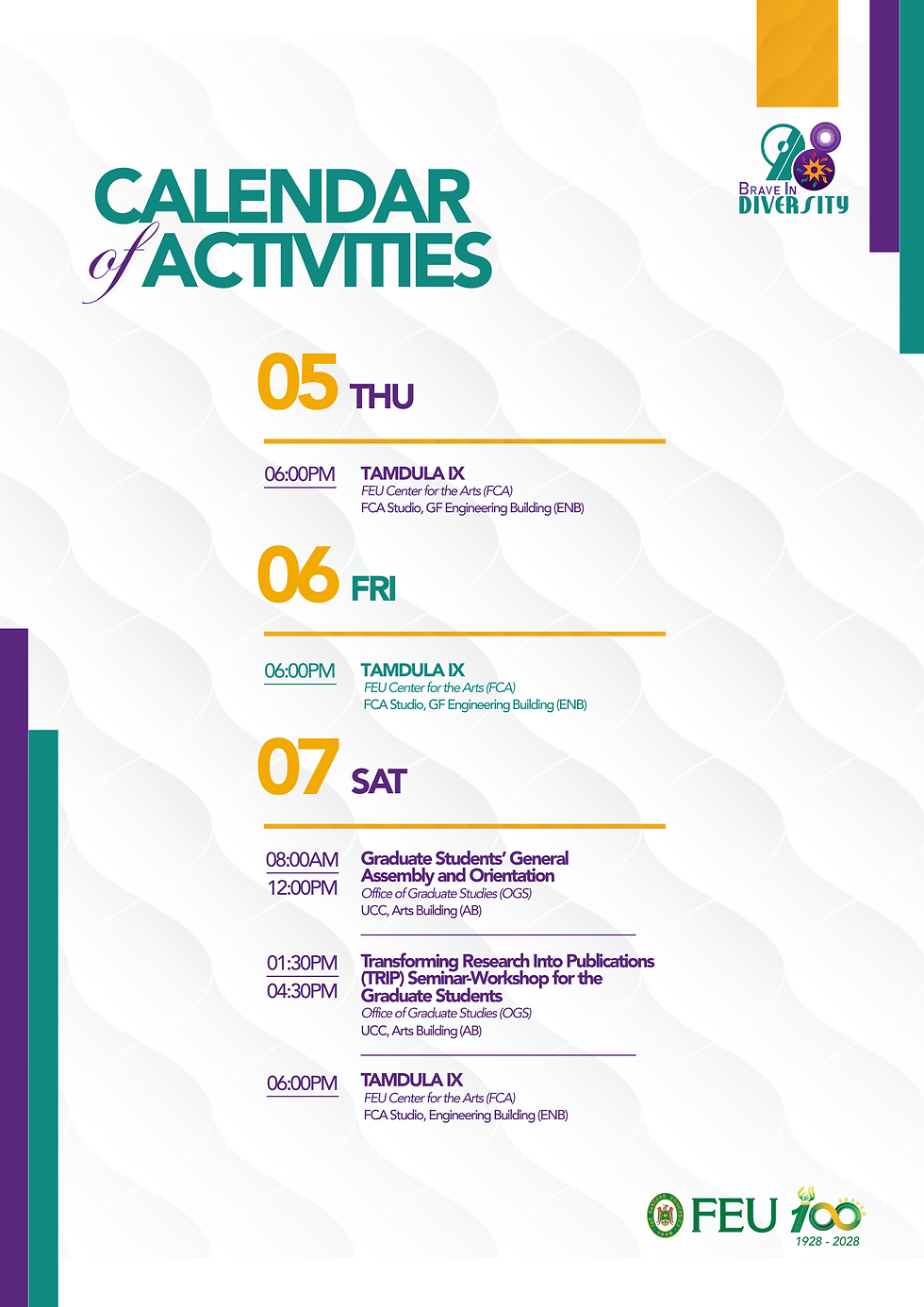DepComm shares faculty research on digital narratives
- Oct 30, 2025
- 2 min read

Faculty-researchers from Far Eastern University’s Department of Communication (DepComm) of the Institute of Arts and Sciences presented their recent studies in “Comm Talk: Research Brown Bag” last Oct. 21 at Arts Building Room 208. The event carried the theme, “Digital Narratives of Influence and Resistance: Filipino Experiences in Faith, Crisis, and Protest.”
Dr. Augustus Caesar Latosa and Joseph Ryann Jalagat opened the session with “A Culture-Centered Reading of Collective Resistance Narratives in the Realm of Duterte’s Drug War as a Structure-Induced Crisis.” Their study examined how families of victims of the Duterte administration’s drug war responded to state violence through acts of resistance. Viewing these responses through a culture-centered approaches, the researchers showed how families reclaimed their voices and challenged official narratives of nanlaban (fought back) that had dismissed or silenced them. Their findings revealed multiple forms of resistance from public demonstrations, theater performances, to legal and community-based initiatives.
Dr. Roderick Evans Bartolome followed with a presentation on the growing presence of Filipino priests in digital spaces, which started during the pandemic. His research, “Between Influence and Connection: Filipino Priests’ Social Media Ministry in Theory and Practice” looked into how priests from the Diocese of Malolos manage their online ministries while balancing personal authenticity and clerical authority. The study revealed the ways in which priests use social media to extend pastoral care and spiritual guidance while maintaining a one-way engagement and interaction with their followers, highlighting their alignment with the Catholic doctrine in their motivations and actions online.
Dr. Nikko Visperas, through “A Multi-Modal Discourse Analysis of #NoToJeepneyPhaseout Posts: Framing and Social Dynamics,” examined online expressions of resistance against the government’s jeepney modernization program through digital posters. His analysis highlighted how social media users constructed messages that reflected opposition as well as unity, compassion, and cultural pride. The study demonstrated how online spaces serve as avenues for collective meaning-making and social critique of government policies.
The forum drew an active audience whose thoughtful questions and constructive feedback enriched the discussion which captures the brown bag spirit of informal yet meaningful academic exchange. By opening a space for dialogue on research, “Comm Talk” reinforced the idea that inquiry gains greater purpose when it is shared, questioned, and collectively reflected on.




Comments